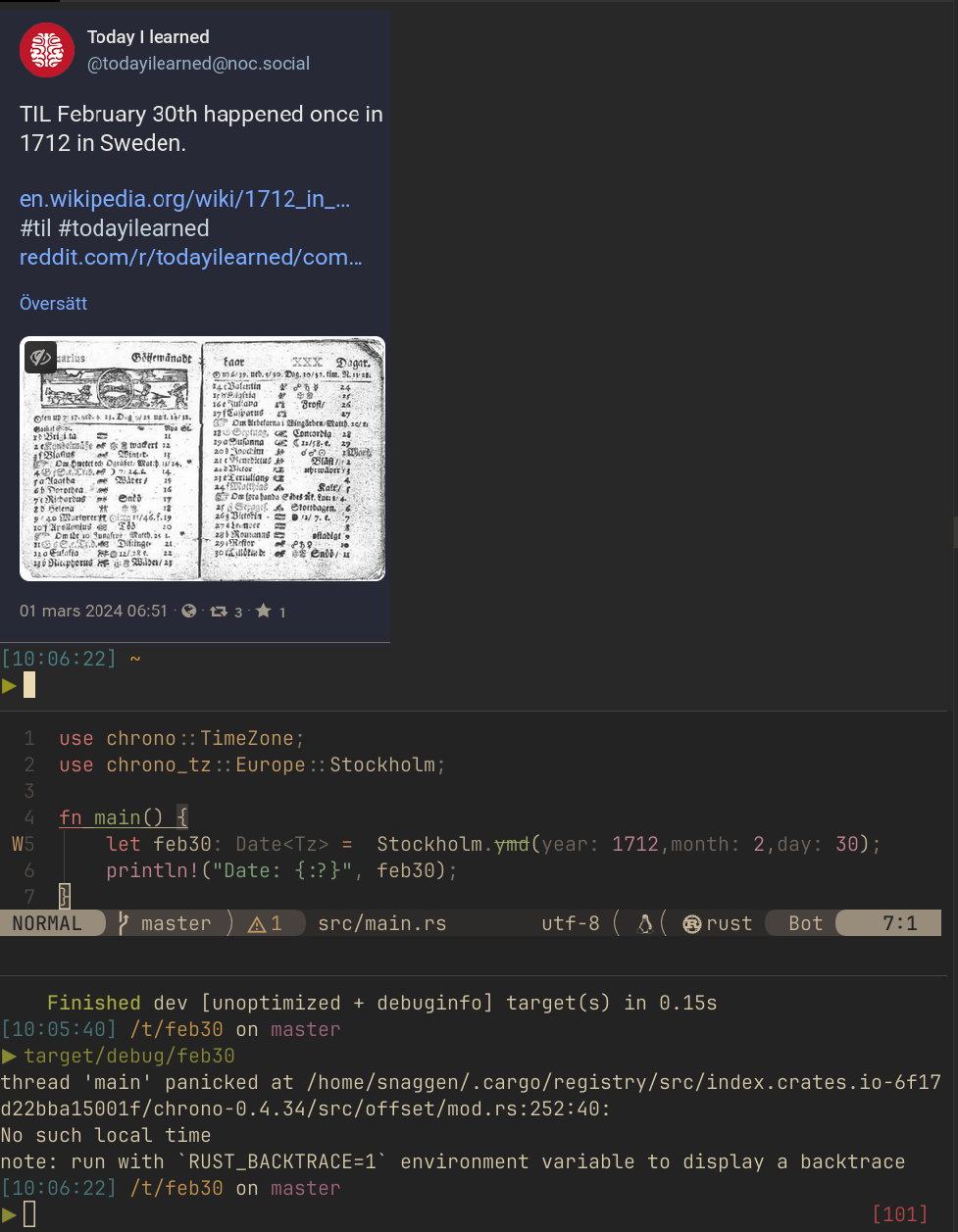Librsvg did the rewrite incrementally, so you can choose to only use rust for new code in an existing codebase.
snaggen
I say that you should find some interesting project, possibly something related to some desktop environment like Gnome, KDE, sway, cosmic and so on. There are multiple fun/interesting projects around them. Then pick a small and manageable task, use that to learn the language that project uses.
I find Cosmic to be a very interesting desktop project, and they use Rust if that would be of interest.
If you avoid Nvidia, it have been ready for many years. And to be honset, not sure X11 was really stable with Nvidia either. My main issue with Wayland, is that X doesn't have multi dpi support... and for that I really cannot blame Wayland. Also, Skype doesn't have screensharing, well, they actually had for a while, but then removed it... still, hard to blame on Wayland.
But as a general rule, if you have Nvidia, then you are not allowed to complain about anything... that was your choice, and with Nvidia under Linux, all bets are off. I thought that was clear a long time a go, especially after Linus not so subtle outburst.
Also, it was easier to support X11, since there is no security. You wanted to read other applications key events, no problem. Want to read the screen, without without anyone knowing? No, problem, just read it. With Wayland you must use APIs for stuff, and you are not allowed to do everything.
Are they really? Didn't you press a button that said "Buy"? Just because they want things to be something else, doesn't mean that the meaning of the words changed.
Well, I have avoided Nvidia for 20 years due to driver issues on Linux, so I would be surprised if you had fixed them all :) But, it sound really promising, looking forward to try it out!
I'm really looking forward to the alpha release. I hope someone package it for Fedora also, so I can test it without to much hassle... if not, I guess it will be PopOS in a VM. @mmstick@lemmy.world what is the general state of it as of today? Are the developers at S76 able to use it as their daily driver (By that I mean, being able to use it since they can over look bugs and such, since they are the developers. Obviously a different bar than end users), or is that expected after the alpha?
The borrow checker handles more than just freeing allocated memory, it will also prevent data races and invalid concurrent access aso. I personally don't have any issues with using garbage collected languages, but the fearless concurrency is nothing I'm willing to give up.
They explain a bit more about what that means here: https://kagifeedback.org/d/2808-reconsider-your-partnership-with-brave/75
TL;DR They use multiple sources for search results besides their own indexer, the most obvious one is Google. To lessen dependence on one single search provider they have been adding other sources, one of them is now Brave. That is the whole thing.
On Dec 26, Kagi started including search results from Brave search index, after we previously added Mojeek and Yandex earlier in the year. Brave has a public search api and we currently implemented it for about 10% of queries as a first test (same as any other API we use, there is no mutual development or anything of the sorts). This was announced in our Dec 28 public changelog. Approximately a week later on Jan 5 after several posts on social media about ‘Brave partnership’ the situation escalated.]
So, if you do not like to use Google in the first place, I don't really understand why lessening the dependence on google would be a bad thing?
Well, there is also a more right leaning take. You take care of your self and scratch your own itch, and you should not be a liability to the society, but make your self useful and contribute back. And I think this is kind of the reason FLOSS works well, it can be aligned with many philosophies.

It starts by presenting it self as an Comedy AI, that implies more than deep fake.